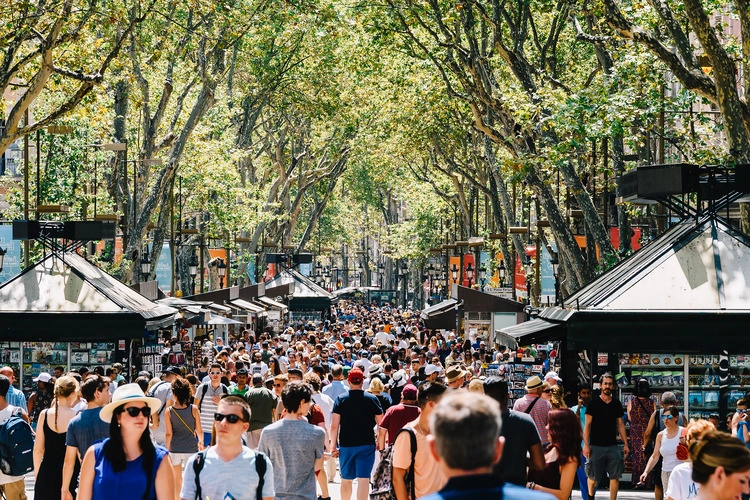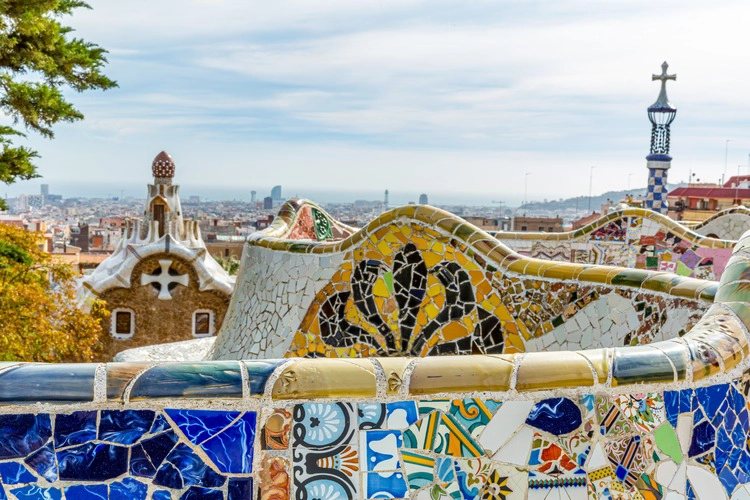
Barcelona resident Eugene Yiga considers the impact of tourism upon the city and its residents, and how to ensure a better, more harmonious future
By Eugene Yiga
This summer, the streets of Barcelona echoed with chants of ‘Tourists go home!’ as nearly 3,000 protesters marched against mass tourism. The sight of demonstrators spraying water at bewildered families and shouting at restaurant patrons was as shocking as it was misguided. While the frustrations driving these protests are valid, the tactics and targets are woefully misplaced. Yes, Barcelona’s tourism problem is real, but the solution lies not in alienating visitors but in addressing the systemic issues that have allowed tourism to grow unchecked.
I recently moved to the city and can understand the concerns of locals. Barcelona’s charm and livability are under threat. Housing costs have skyrocketed, with rents increasing by 68 per cent in the past decade. Iconic neighbourhoods have become unrecognisable, overrun by souvenir shops and rowdy bars. The incessant noise of rolling suitcases and drunken revellers has become the soundtrack of once-peaceful streets.
However, blaming individual tourists for these issues is not only unfair but counterproductive. They’re simply people drawn to one of the world’s most beautiful cities, often unaware of the complex issues their presence exacerbates. The real culprits are the policies and economic forces prioritising short-term profits over long-term sustainability.
Local governments have failed to adequately regulate the explosion of short-term rentals, allowing entire apartment blocks to be converted into de facto hotels. Property speculators and multinational corporations have capitalised on lax regulations, driving up housing costs for residents. These are the forces that deserve scrutiny and protest, not the average tourist enjoying a paella on La Rambla.
Moreover, we can’t ignore the economic reality that tourism brings. The sector accounts for 14 per cent of the city’s GDP. Many of the same locals protesting tourism likely have friends or family members employed in hotels, restaurants, or other tourism-adjacent industries. A sudden drop in tourism would devastate the local economy, potentially causing more harm than good to the residents seeking relief.

That said, the concerns driving these protests are entirely valid. The housing crisis is real. Long-term residents are being pushed out of their neighbourhoods, unable to compete with the inflated rents. The city’s unique culture and character are at risk of being diluted by a constant influx of transient visitors. These are serious issues that demand action.
However, the hypocrisy of some anti-tourist sentiment can’t be ignored. Many Spaniards, including Catalans, are enthusiastic tourists themselves when visiting other countries. The same issues plaguing Barcelona – overcrowding, rising costs, cultural clashes – are experienced in cities from Amsterdam to Venice to Kyoto. It’s a global phenomenon that requires nuanced, thoughtful solutions, not xenophobic outbursts.
So, what can be done? First and foremost, Barcelona needs stricter regulations on short-term rentals. Cities such as New York have implemented policies that effectively ban most Airbnb-style rentals. Barcelona now plans to follow suit (albeit by 2028), ensuring that apartments are homes first, not investment properties.
Second, the city needs to diversify its economy. While tourism will always be a key sector, over-reliance on it leaves Barcelona vulnerable to economic shocks (as we saw during the Covid-19 pandemic) and exacerbates many of the issues residents are protesting. Investing in other industries, particularly in the tech and creative sectors, could provide well-paying jobs that allow locals to compete in the housing market.
Urban planning must also play a role. Barcelona could implement strategies to better manage tourist flow, perhaps by creating designated tourist zones while preserving other areas for local life. This could help maintain the city’s character while still accommodating visitors. Furthermore, Barcelona should lead the way in sustainable tourism initiatives. This could include higher tourist taxes to fund local infrastructure and services, stricter regulations on cruise ships to reduce pollution, and education programmes for visitors about responsible tourism.
Local government bears significant responsibility for the current situation. For too long, officials have prioritised short-term economic gains over long-term sustainability. It’s time for bold action that balances the economic benefits of tourism with the needs and rights of residents.
Ultimately, while the anger driving Barcelona’s anti-tourist protests is understandable, the tactics are misguided and potentially harmful. Moreover, the solution to overtourism isn’t to demonize visitors but to implement smart, sustainable policies that manage tourism’s impact while preserving livability for residents.
Barcelona has always been a city of innovation and creativity. It’s time to apply that spirit to solving the tourism dilemma. The future of this magnificent city depends on finding a balance between welcoming the world and preserving the very essence that makes it so irresistible.




